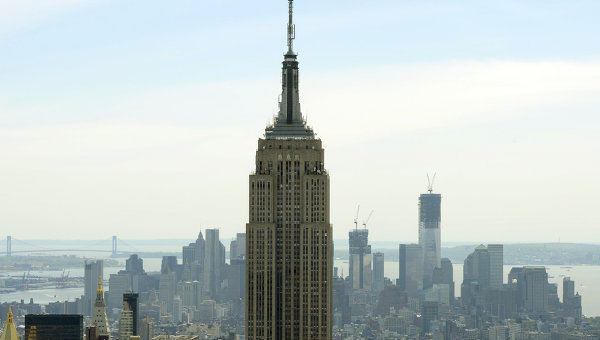MOSCOW, September 13 (RAPSI) – A US federal court Wednesday issued a protective order over property implicated in a lawsuit alleging fowl play by a Russian criminal enterprise linked to the Hermitage Capital Fund.
US prosecutors filed a complaint Tuesday seeking the forfeiture of certain properties belonging to companies allegedly involved in a money laundering scheme connected with large-scale Russian tax fraud.
In part, the complaint alleges that a Russian criminal organization carried out an elaborate scheme defrauding Russian taxpayers of approximately $230 million. The complaint alleges that the proceeds of the fraud were laundered through various shell companies in Russia and abroad. Prosecutors claim that some of that money was then transferred through Moldovan shell companies to Prevezon Holdings, which in turn used those, commingled with funds from other defendant companies, to purchase an array of New York real estate.
The complaint thus alleged that the properties – listed in the complaint as Defendants in Rem – are forfeitable to the US, “as property involved in money laundering and attempted money laundering transactions, in violation of” US law, according to Wednesday’s order.
Accordingly, US prosecutors applied for a protective order over the properties.
The protective order issued Wednesday applies to all in personam defendants, including numerous Prevezon entities, and two other companies – Ferencoi Investments, Ltd. and Kolevins, Ltd. – as well as any attorneys or other such representatives acting on their behalves. Prevezon Holdings belongs to Denis Katsyv, the son of former Moscow Region Transport Minister Petr Katsyv, an attorney for Denis Katsyv confirmed to RAPSI Wednesday. The attorney, Natalia Veselnitskaya, maintained, however, that Prevezon Holdings had nothing to do with such illegal transactions.
The restrained property interests include “any and all assets of” each of the in personam defendants.
Various of the Pervezon defendants’ bank accounts were included as well.
Collectively, the restrained properties constitute the in rem defendants in the case.
Prosecutors allege that certain Manhattan properties were purchased with money fraudulently acquired through a Russian tax scheme unveiled by Hermitage Capital auditor Sergei Magnitsky, who died in a Moscow pre-trial detention center in 2009. Denis Katsyv's attorney stressed, however, that neither her client nor any of his relatives are linked with the Magnitsky case specifically or the Hermitage Fund in general.
Magnitsky was arrested on November 24, 2008, on suspicion of having masterminded large-scale corporate tax evasion. He died while in pretrial detention on November 16, 2009, after spending a year behind bars. The case was closed after his death, only to be reopened later. Under Russian law, a person can be prosecuted after death. On July 11 Magnitsky was found guilty of tax evasion.
According to the Prosecutor General's Office, Magnitsky died of heart failure. His death evoked an international outcry, triggered amendments to the Criminal Code and a reshuffling of officials in the penal system.
Hermitage maintains that it paid 5.4 billion rubles ($180 million) in taxes, but the money was stolen by corporate raiders with the help of law enforcement officials.
On Dec. 6, 2012, the US Senate approved the Magnitsky Act, to severe criticism from the Russian State Duma, stipulating visa sanctions for Russians who are believed by US authorities to have been involved in human rights violations. The Magnitsky List, which was published in part on April 12, includes the names of 18 Russian officials who are barred from travelling to the United States.



